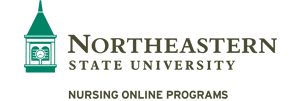As the U.S. population ages, patient care is becoming increasingly complex. Patients often have chronic medical conditions in addition to the immediate illness that leads them to seek care. Registered nurses (RNs) treating these complex cases must be equipped with knowledge and skill to ensure safe, evidence-based practice.
In 2011, the Institute of Medicine (now known as the National Academy of Medicine, or NAM) published The Future of Nursing, a report outlining recommendations to strengthen the profession of nursing. The report highlighted looming challenges presented by the shortage of nurses prepared to care for the rapidly increasing number of aging Americans. Specific to the field of nursing education, the report recommended that 80 percent of practicing nurses should be BSN-prepared by the year 2020. AARP and the Robert Wood Johnson Foundation formed a partnership, Campaign for Action, to help address NAM’s recommendations. Education is a major focus of the campaign.
If you began your nursing career with an Associate Degree in Nursing (ADN) or Diploma in Nursing, you are well-equipped to provide direct patient care in a multitude of settings. However, earning your Bachelor of Science in Nursing (BSN) degree can help you enhance your practice in many ways.
Improved Patient Outcomes
According to Phillips and Titzer Evans, fewer medication errors are reported when BSN-prepared nurses comprise over half of nursing staff. Failure-to-rescue rates and 30-day patient mortality rates are also lower in facilities where more BSN-prepared nurses practice. Research points to the critical thinking skills developed during a BSN program as the primary factor in improved patient outcomes.
Further Develop Your Skills
The experience you already have as an RN is invaluable. Completing a BSN program will build on that experience by further developing your critical thinking skills. Leadership, healthcare policy, informatics, finance, research and population health are part of the curricula of BSN programs. Knowledge regarding these subjects is essential for RNs in today’s rapidly changing healthcare environment. As you progress through each course, the focus of your practice will transform. Rather than simply completing tasks, you will begin to think critically and apply evidence to support the care you provide.
Increase Your Confidence
Nurses who transition from RN to BSN experience greater confidence and competence. This stems from gaining a broader perspective of the profession of nursing, which leads to increased engagement in practice. In other words, when you gain greater understanding of your profession, the ability to lead change in practice based upon the latest evidence is substantially improved, according to “RN-BSN Students’ Perceptions of the Difference in Practice of the ADN- and BSN-Prepared RN” by Matthias and Kim-Godwin.
Take the Lead
Earning your BSN can open a world of possibilities for continued learning and career advancement. You can pursue an advanced degree in nursing leadership, education, informatics or one of several other healthcare specialties. An advanced practice degree would give you the opportunity to practice as a nurse practitioner, clinical nurse specialist, nurse anesthetist or nurse midwife. You can also decide to pursue a doctoral degree.
Since The Future of Nursing was published in 2011, the number of RN to BSN graduates has steadily increased each year. As of 2015, 53 percent of practicing nurses are BSN-prepared. The number of nurses who begin and successfully complete an RN to BSN program has also improved — 47.4 percent graduated in 2016 as compared to 30.6 percent in 2010, according to the Campaign for Action.
With 2020 drawing near, the need for BSN-prepared nurses is greater than ever. Research shows that patient outcomes, confidence and engagement in practice are all positively influenced by earning a BSN. Now is the time to build on your existing nursing experience and prepare for the future.
Learn more about the NSU online RN to BSN program.
Sources:
National Academy of Sciences: The Future of Nursing
Journal for Nurses in Professional Development: RN to BSN Transition: A Concept Analysis


